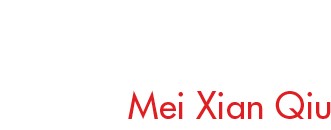WEHOVILLE ARTICLE
New WeHo Park Mural Suggests Make Love, Not War
Mon, Nov 07, 2016
By Staff
From the “Let a Thousand Flowers Bloom” series by Mei Xian Qiu.
“Let A Thousand Flowers Bloom; 8990,” a mural by Los Angeles-based artist Mei Xian Qiu, has just been installed in West Hollywood Park. Presented by the City of West Hollywood through WeHo Arts, the large format piece [9 x 9 feet] is located on the ground floor of the five-story parking structure adjacent to West Hollywood Park and West Hollywood Library. It will remain on view through July 2017.
The image is from a series of photographs that imagines a mock Chinese invasion of the United States. Hidden political dangers are suggested, but rather than being urgently addressed, are put aside momentarily, subsumed to the romance of the Chinese cultural revolution-era’s notion of “the beautiful idea.”
While employing familiar symbolism and historical dystopianism, the work also explores the quest for an inner utopia, a theme common to Xian Qiu’s body of work. As well, the piece references the past yet boldly faces the future – affirmatively critical, specifically with respect to globalism, the identity of the self, the social landscape, post-colonialism and that of the larger national body politic.
Mei Xian Qiu
“I thought about if soldiers were countries – what would they do?” said Mei Xian Qiu. “Get into bed with each other, court each other, as governments do? It deals with the issue of identity as something that we create, and how others perceive that in a cultural sense. Especially as urban people, we’ve become so removed from any type of indigenous existence. It leads me to recreate my own fantasy of cultural identity.”
The title plays off Mao Zedong’s quote “Let a hundred flowers blossom, let a hundred schools of thought contend.” Taken from classical Chinese poetry, this line originated in a 1956 speech in which the then chairman of the Peoples’ Republic of China Communist Party seemingly launched a movement supporting liberalization and freedom.
Mao used the slogan to proclaim a great society where free speech and debate would flourish – as a result, artists, academics, and intellectuals came out of hiding and there was a brief flowering of culture. As the campaign gathered pace, intellectuals began to criticize censorship, the Soviet economic model and human rights abuses. Mao had underestimated the amount of dissent and in 1957 altered his speech to say that intellectual freedom was only valid when it contributed to strengthening communism, sending anyone who contradicted into labor camps.
Throughout Mei Xian Qiu’s “Let A Thousand Flowers Bloom” series, the models are Pan Asian and American artists and academics specializing in Chinese culture, the very sorts of people at risk in a Hundred Flowers Movement. The costumes include discarded U.S. military uniforms, cheongsams constructed for the photographs and Chinese mock ups taken from a Beijing photography studio, specializing in outfits for foreign tourists to re-enact Cultural Revolution propaganda imagery.
Mei Xian Qiu’s own story clearly informs her work. She was born in the town of Pekalongan, on the island of Java, Indonesia, to a third generation Chinese minority family – when it was illegal to be Chinese in Java. Her village had no cars, just horse-drawn carts and bicycles.
At birth, her parents gave her multiple names – Chinese, American and Indonesian – in preparation for societal collapse and variant potential futures. In the aftermath of their homeland’s Chinese and Communist genocide, the family emigrated from Java to the United States. During her childhood, she was moved back and forth several times between the two countries as her parents weighed what they perceived as the amorality of life in the West against the uncertainty of life in Java.
Partially as a result of a growing sense of restlessness, her father joined the U.S. Air Force and the family lived throughout the country, sometimes staying in one place for just a month at a time. The artist has also been based in Europe, China, and Indonesia as an adult (www.meixianqiu.com).

